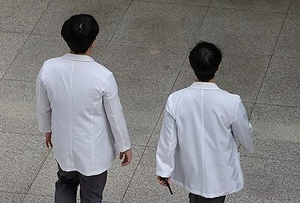Seoul: South Korean Health Minister Cho Kyoo-hong on Tuesday expressed deep concerns over a decision by medical professors to resign unless there is a breakthrough in a prolonged walkout by trainee doctors, saying that such a collective action would pose a threat to the safety of patients.
On Monday, medical school professors at Seoul National University (SNU) resolved to submit resignations en masse next week if the government fails to present “a reasonable breakthrough” in the prolonged walkout, Yonhap news agency reported.
“The decision threatens the lives and health of patients, which is a source of grave concern. Another mass resignation will put the lives of the patients at risk and will not be able to win the public’s understanding,” Cho Kyoo-hong said during a meeting of the Central Disaster and Safety Countermeasures Headquarters.
More than 90 per cent of the country’s 13,000 trainee doctors walked off the job in the form of mass resignations more than three weeks ago to protest the government’s decision to increase enrollment at medical schools by 2,000 spots starting next year to address a shortage of doctors. The current quota is 3,058.
“The resignation decision threatens the lives and health of patients, which is a source of grave concern. Another mass resignation will put the lives of the patients at risk and will not be able to win the public’s understanding,” Cho Kyoo-hong said.
Medical school professors have warned of action if the government fails to come forward for dialogue without conditions.
“We will hold the government responsible if the ongoing situation will cause damage to trainee doctors and medical school students,” an association of medical school professors said in a statement.
“Voluntary resignation by professors will grow further, which will lead to the collapse of the country’s health care system and medical education.”
Medical professors of the Catholic University of Korea also threatened to further suspend surgeries and cut back on treatments for both inpatients and outpatients. Those of Seoul’s Chungang University warned of making “even stronger responses.”
The government, in response, said it is reviewing the issuance of an administrative order for professors to continue the work if they tender resignations.
Meanwhile, Cho held a closed-door meeting Monday with defiant trainee doctors to resolve their protracted walkout, Second Vice Health Minister Park Min-soo told reporters, adding that Cho Kyoo-hong would hold more discussions with the medical community.
As part of reform measures, the health ministry vowed to swiftly enforce a regulation that calls on newly built hospitals to hire more fellow doctors by considering two trainee doctors as one specialist.
Currently, the country’s medical system heavily relies on intern and resident doctors, particularly in terms of emergency and acute health care duties.
“The government will revise the policy on fellow doctors in charge of inpatients and expand pilot programs about duties of nurses to better support the operation of the medical system that centers on specialists,” Park Min-soo said.
The government will also extend financial support for hospitals hiring more fellow doctors and implement various other measures to improve their working conditions, Park Min-soo said.
Trainee doctors accounted for around 40 per cent of major hospitals, far higher than 10 per cent in hospitals in other major countries, according to ministry data.
The government, however, has maintained a firm stance against striking doctors, saying that the government will hold those who committed wrongdoings accountable and continue to push for reform measures “to normalise the country’s medical system.”
As of Monday, the government sent prior notices of license suspension to a total of 5,556 trainee doctors who have defied the state return-to-work order.
As medical service disruptions have worsened, the health ministry on Tuesday opened a hotline to protect physicians wishing to return.
The government has also deployed military surgeons and public health doctors at strike-hit hospitals to help care for patients affected by the walkout.
The government is pushing to increase the admission quota to address a shortage of doctors, particularly in rural areas and essential medical fields, such as high-risk surgeries, pediatrics, obstetrics and emergency medicine.
Given the rapid population aging and other issues, the country is also expected to run short of 15,000 doctors by 2035.
But doctors argue that the quota hikes would compromise the quality of medical education and services and create a surplus of physicians, and the government must devise ways of better protecting them from malpractice suits and extending compensation to induce more physicians to practice in such “unpopular” areas.
–IANS


Comments are closed.